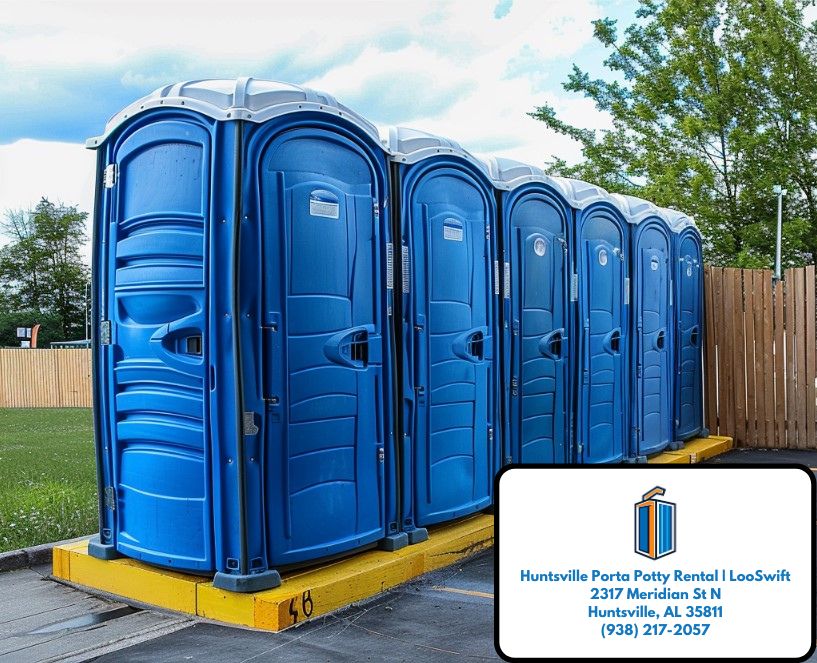Portable showers are fundamental for Huntsville's disaster recovery because they guarantee hygiene and dignity for those affected. You might face increased health risks in contaminated environments, making access to clean facilities imperative. Portable showers help restore a sense of normalcy and morale, fostering community resilience during difficult times. They offer privacy and support for displaced residents, reducing stress levels in shelters. Furthermore, they're critical for emergency responders, enhancing their focus and performance. By prioritizing hygiene, you contribute to long-term recovery and community healing, setting the stage for resilience and hope in rebuilding efforts. There's more to uncover about this fundamental component.
Importance of Hygiene During Recovery
When disaster strikes, maintaining hygiene often becomes a challenge, yet it's essential for your health and recovery process. Poor hygiene can lead to infections, especially when you're exposed to contaminated environments.
You might find yourself in temporary shelters or makeshift living spaces where access to clean water and sanitation facilities is limited. In these situations, you need to prioritize personal hygiene to stave off illness.
Portable showers can play an important role in this effort, allowing you to cleanse yourself regularly and porta potties near me reduce the risk of skin infections or other health issues.
Enhancing Community Morale
Maintaining hygiene during recovery not only safeguards health but also elevates community spirits. When you have access to portable showers, you experience a sense of normalcy amidst chaos.
Cleanliness can greatly enhance your mood, fostering a collective resilience among neighbors. As you and others wash away the remnants of disaster, you're not just rinsing off dirt; you're also cleansing anxiety and despair.
This small act of self-care can lead to conversations, shared experiences, and a renewed sense of connection. In return, these interactions build a supportive environment, reinforcing community bonds.
Ultimately, portable showers serve as more than just facilities; they become symbols of hope and recovery, reminding everyone that despite challenges, togetherness can thrive.
Accessibility for Displaced Residents
While disaster recovery often focuses on shelter and basic needs, accessibility to portable showers plays a crucial role in the well-being of displaced residents.
These showers provide more than just hygiene; they restore dignity and a sense of normalcy during chaotic times. When you have access to clean bathing facilities, it impacts your physical health, mental clarity, and emotional resilience.
In crowded shelters or temporary housing, the lack of privacy and basic hygiene can exacerbate stress and anxiety. Portable showers, strategically located and easily accessible, guarantee you can maintain personal hygiene, which is fundamental for both physical and mental well-being.
Prioritizing these facilities in disaster recovery plans can noticeably improve the quality of life for those affected.
Supporting Emergency Response Teams
Supporting emergency response teams is vital for an effective disaster recovery effort, as their ability to provide timely aid hinges on having access to the right resources.
Portable showers play an important role in this situation. After natural disasters, responders often face long hours in challenging conditions, which can lead to fatigue and decreased efficiency. By providing them with portable showers, you guarantee they maintain personal hygiene and morale, directly impacting their performance.

Cleanliness isn't just about comfort; it prevents illness and helps keep teams focused on their mission. When you support these teams with adequate resources, you're not just enhancing their well-being; you're also amplifying their capacity to serve those affected by the disaster, guaranteeing a more effective recovery process in general.
Long-term Recovery and Resilience
As emergency response teams complete their immediate tasks, the focus shifts to long-term recovery and resilience for affected communities.
You'll find that rebuilding efforts require not just physical infrastructure but also mental and emotional support. Portable showers play a significant role here, promoting hygiene and dignity during the recovery process.
When individuals have access to clean facilities, it fosters a sense of normalcy and encourages community engagement. This contributes to faster healing and collaboration among residents.
Furthermore, consistent access to hygiene resources helps prevent health crises, allowing communities to focus on rebuilding.
Frequently Asked Questions
How Do Portable Showers Connect to Water Sources During Disasters?
During disasters, you'll find portable showers connect to nearby water sources through hoses or tanks. They utilize pumps to guarantee adequate pressure, allowing you to maintain hygiene despite challenging circumstances and limited access to clean facilities.
What Types of Portable Showers Are Available for Disaster Recovery?
You'll find different portable showers for disaster recovery, including solar-powered units, pressurized models, and those connected to water tanks. Each type offers unique benefits, ensuring you have access to hygiene amidst challenging circumstances.
How Are Portable Showers Maintained and Cleaned in Emergency Settings?
You'll need to regularly inspect and clean portable showers, guaranteeing they're free from debris. Use disinfectants to sanitize surfaces, check water quality frequently, and address any maintenance issues immediately to guarantee a safe, hygienic experience for users.
Can Portable Showers Be Used in Remote or Rural Areas?
Yes, portable showers can be effectively used in remote or rural areas. Their mobility and ease of setup guarantee that you can provide crucial hygiene services wherever needed, helping maintain health and dignity during challenging situations.
What Are the Costs Associated With Deploying Portable Showers?
When deploying portable showers, you'll encounter costs like rental fees, transportation, setup, and maintenance. Budgeting for water supply and sanitation services is essential, ensuring everyone can access these important facilities during emergencies or recovery efforts.